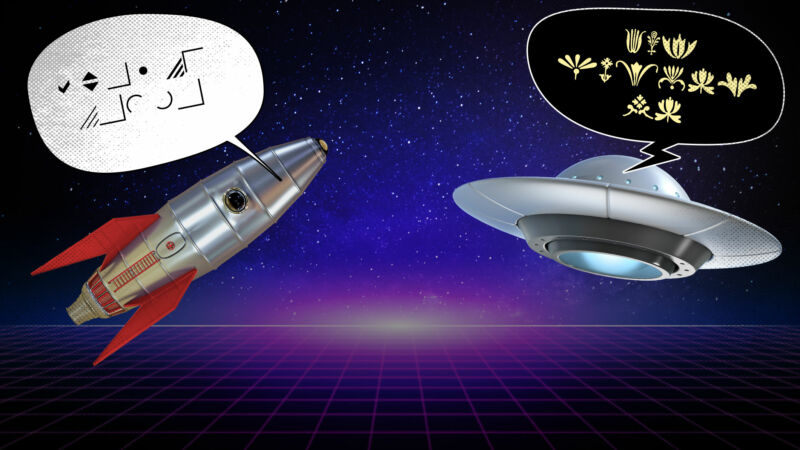
Enlarge / Artist's impression of either understanding being achieved or intergalactic war being incited, I'm not sure which. (credit: Aurich Lawson | Getty Images)
Andy Weir's latest, Project Hail Mary, is a good book that you'll almost certainly enjoy if you enjoyed Weir's freshman novel The Martian. It's another tale of solving problems with science, as a lone human named Ryland Grace and a lone alien named Rocky must save our stellar neighborhood from a star-eating parasite called "Astrophage." PHM is a buddy movie in space in a way that The Martian didn't get to be, and the interaction between Grace and Rocky is the biggest reason to read the book. The pair makes a hell of a problem-solving team, jazz hands and fist bumps and all.

Project Hail Mary
I get it—that's how storytelling works. I don't want to sound like a bitter basement-dwelling critic throwing shade at a bestselling science fiction author. But PHM is like The Martian in that it's about solving problems realistically. From my nerd basement throne, it feels like the softer sciences of linguistics and anthropology (or perhaps xenolinguistics and xenoanthropology) don't get the same stage time as their more STEM-y counterparts like physics and relativity.
No comments:
Post a Comment